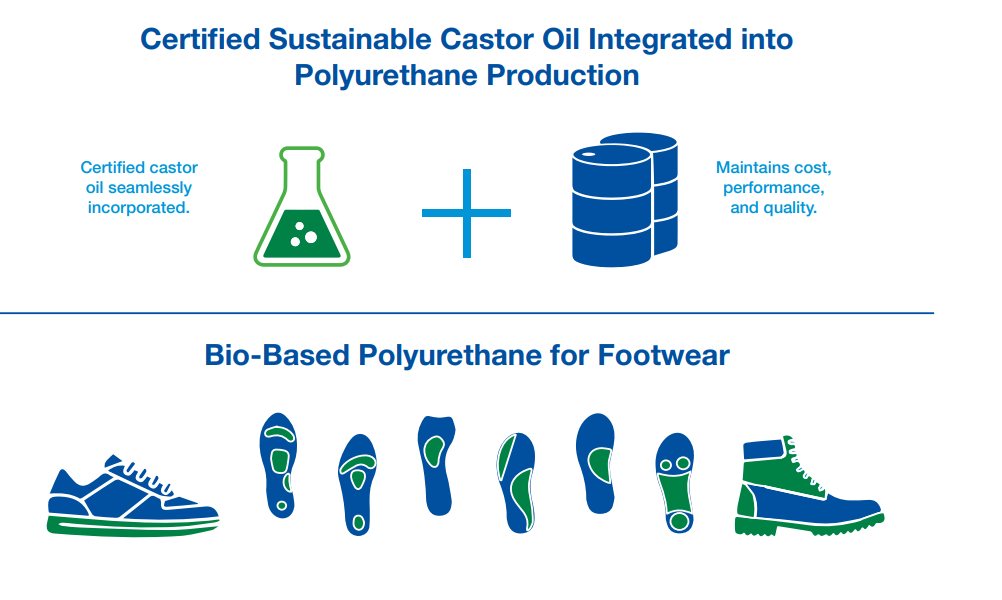Tuesday, 3 March 2026

Sustainable Castor Caring for Environmental and Social Standards (SuCCESS) code the first global standard that certifies castor oil and its derivatives – such as bio-based polyurethane.
BASF together with the world’s first castor bean program ‘Pragati’ (Pragati), introduces certified traceability for bio-based solutions in footwear. Pragati was established with the unified sustainability code SuCCESS (Sustainable Castor Caring for Environmental and Social Standards) that sets a standard for certified sustainable castor oil.
“The footwear segment has been at the forefront of implementing sustainable solutions at BASF. With the availability of certified traceable bio-based polyurethane solutions, we are well-positioned to serve the growing demand for eco-friendly solutions for the footwear business in Asia,” said Andy Postlethwaite, Senior Vice President, Performance Materials Asia Pacific, BASF.
The demand for sustainable footwear solutions has been growing steadily in tandem with consumer awareness. Footwear brands and manufacturers have a clear goal to enhance the sustainability aspects of their products without compromising on cost, performance or quality. Bio-based solutions offer enhanced sustainability by reducing fossil resource consumption. Additionally, castor oil is derived from the seeds of the non-edible castor oil plant (Ricinus communis). As it can grow in arid or semi-arid regions, it requires less water as well. The dried beans also have a long shelf life.
“Meanwhile, we are looking to extend the use of this bio-based solution to other segment applications as well,” added Postlethwaite.
Pragati was launched in May 2016 in Gujarat, India as the region produces about 70% of the world’s supply of castor beans. Over 7,000 hectares of generally semi-arid land are now farmed according to the SuCCESS sustainability code since its introduction in the region. More than 7,000 farmers have been trained, audited, and certified. Over 74,500 tons of certified castor seeds have been cultivated, and year 7 yield is 36% higher than the yield published by the local government for this region.